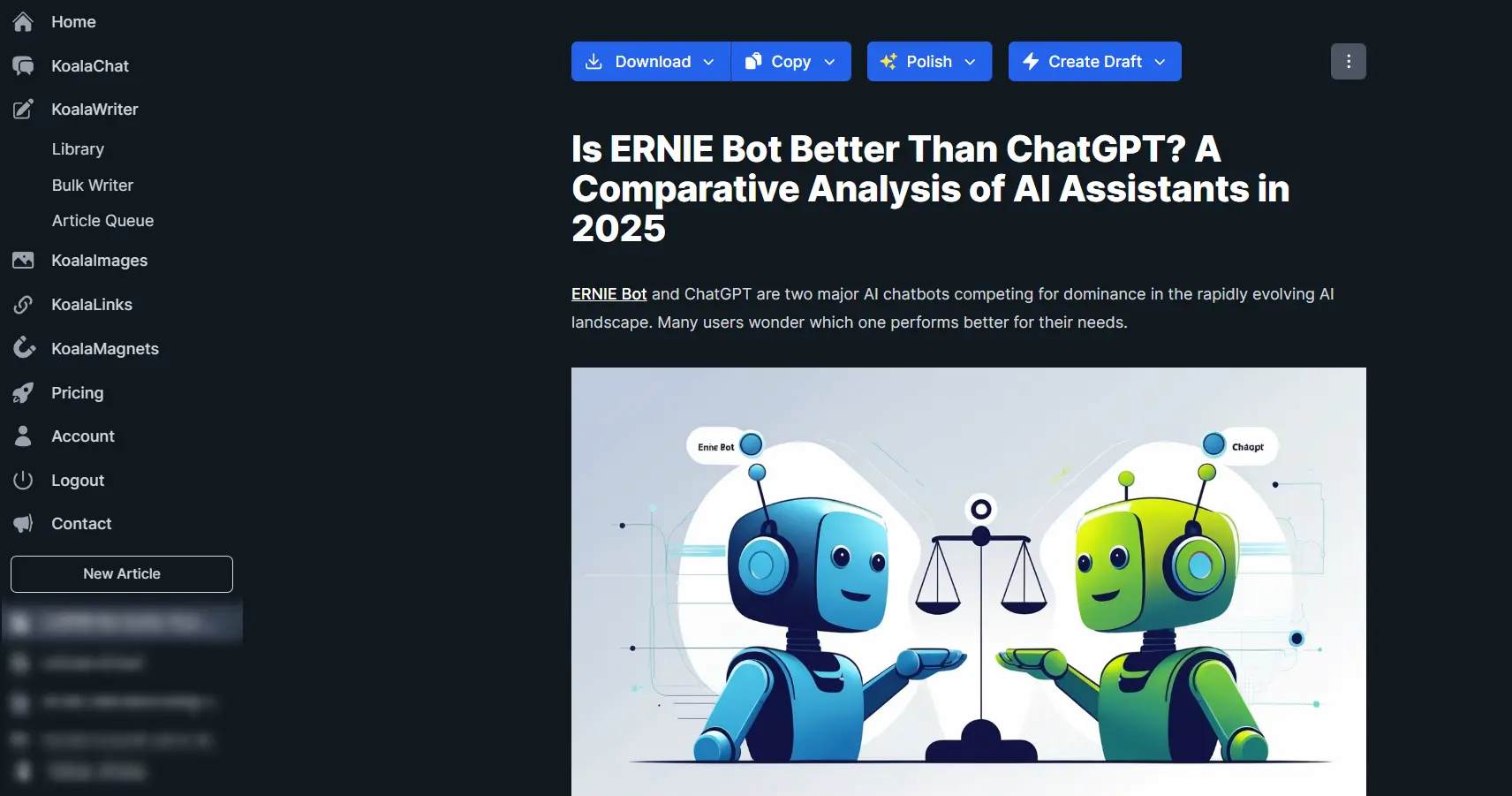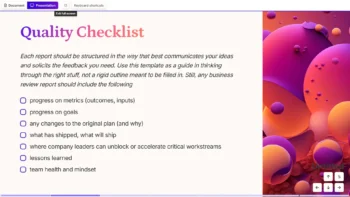
Meta AI
Table of contents:
-
1,415
Meet HeadAI – The World’s First AI Marketer
- Automate your influencer strategy.
- Scale your affiliate campaigns.
- Send cold emails that convert.
All in one click. All handled by Head, your personal AGI-powered growth partner.
🧠 No hiring. No training. Just pure execution.
Language Models
Recommended for:
✍
✍
✍
✍
✍
✍
✍
✍
Koala AI Writer
Write long-form articles, product reviews, and affiliate posts using real-time data and GPT-4.1, or Claude Sonnet 3.7 .
No fluff. Just fast, optimized content that works.
What you get:
- One-click SEO articles with smart outlines
- Built-in Amazon & Google data for affiliate content
- Custom tone, structure, and internal links
- Powerful language models (Gpt 4.1, Claude Sonnet 3.7, Claude Sonnet 4.0

AI tools supported
Go to: Home » Apps » Generative AI
Quick overview
Meta AI, built on the powerful Llama 3.1 model, is designed to simplify your daily tasks, and can be seen as direct alternatives to established AI chatbots such as Gemini, Chatgpt, and Chatgpt .
This innovative AI assistant can answer questions, help with writing, offer step-by-step advice, and even create shareable images.
Meta AI is supported on various platforms, including Facebook, Instagram, WhatsApp, and Messenger. It’s available on smart glasses and the web, expanding its reach to many users globally.
The AI features support eight languages and can handle large context lengths up to 128K, making it highly versatile.
With Meta AI, users can get more productive and creative. This assistant is excellent for anyone looking to streamline their work, learn new things, or engage with social media more effectively.
And the best part? Meta AI is available for free, making it accessible to everyone. For more details, you can explore the latest features and benefits on Meta AI’s main page.
What is Meta AI

Meta AI is a digital assistant developed by Meta (formerly Facebook). Its primary goal is to make digital interactions more intuitive and productive. You can ask it questions, seek advice, and create images effortlessly. Built on the Llama 3.1 model, it provides accurate and helpful responses.
This AI is integrated into various Meta products, including apps, smart glasses, and the web. It aims to help you connect with the information and people that matter most.
By leveraging its abilities, users can enhance their digital communication and productivity.
Historical development
Meta AI has evolved significantly since its inception. Initially, Meta focused on building a general AI assistant. Over time, they refined and expanded its capabilities using advanced models.
The introduction of the Llama 3.1 language model marked a significant leap, making the assistant smarter and more versatile.
Today, Meta AI supports multiple languages and is available on a broad range of platforms.
For more details, you can explore how Meta AI is integrated into different devices like Meta Quest and Ray-Ban smart glasses.
Technical aspects
Supported platforms
Meta AI is available on various platforms to ensure broad accessibility. It supports major cloud platforms such as:
- AWS
- Google Cloud, and
- Microsoft Azure.
Also, it is compatible with Databricks, Hugging Face, Kaggle, IBM WatsonX, NVIDIA NIM, and Snowflake.
You can also use Meta AI within Meta’s family of apps, on smart glasses, and through their web interface. This multi-platform support makes Meta AI versatile for different use cases, from individual users to large enterprises.
Practical application
Meta AI is revolutionizing how AI is integrated into daily tasks and professional environments, making it a versatile tool for a variety of uses.
Use cases
Content Creation: For writers and marketers, Meta AI assists in drafting and editing content, ensuring it is engaging and error-free. Speed up your workflow with automatic suggestions.
Data Analysis: Meta AI helps data analysts by processing vast amounts of data and providing insights that are easy to understand. It highlights trends and patterns swiftly.
Personal Assistance: Use Meta AI for personal tasks like scheduling, reminders, or even creating shopping lists. Its versatility makes day-to-day management easier and less time-consuming.
It is available on various platforms, such as Facebook, Instagram, and WhatsApp, making it accessible wherever you are.
Target audience
Businesses: Companies of all sizes benefit from integrating Meta AI into customer service, marketing, and data analysis tasks. It aids in increasing productivity and efficiency.
Developers and Tech Enthusiasts: Those in the tech field find Meta AI’s coding capabilities and integration with multiple platforms like AWS, Google Cloud, and Microsoft Azure especially useful.
Everyday Users: Individuals looking for a smart assistant in their daily lives can use Meta AI for simple tasks like sending messages, setting appointments, and more.
Educational Institutions: Schools and universities can utilize Meta AI to assist in administrative tasks and enhance learning experiences through interactive and tailored content delivery.
Commercial information
Meta AI is positioned as a leading AI solution with a transparent pricing structure and broad availability across numerous platforms.
Availability and access
Meta AI is accessible on multiple platforms, making it versatile for various uses. The AI supports platforms like AWS, Google Cloud, Microsoft Azure, and IBM WatsonX.
This availability ensures seamless integration with existing business infrastructure.
Meta AI is also integrated into Meta’s family of apps, smart glasses, and the web, providing users with various means to interact with the AI. Recently, Meta AI has started rolling out on the Meta Quest, replacing current voice commands for better user control in the US and Canada.
Frequently Asked Questions
Here are answers to some common questions about Meta AI, including its supported platforms, key features, language support, recommended use cases, pricing, and functionality.
What platforms currently support Meta AI’s integration?
Meta AI can be used within Meta’s family of apps, such as Facebook and Instagram. It is also available on web platforms, Ray-Ban Meta smart glasses, and is set to roll out on Meta Quest in the US and Canada next month in experimental mode.
What are the key features of Meta AI?
Meta AI offers several features:
- Answers questions accurately.
- Provides advice and writing assistance.
- Helps create images.
- Enhanced reasoning and coding capabilities.
- Multilingual support.
Which languages are supported by Meta AI’s language models?
Meta AI supports multiple languages, thanks to its latest Llama 3.1 model. This includes a variety of languages to improve its accessibility and effectiveness in diverse settings. For more details, visit Meta AI.
For what use cases is Meta AI most recommended?
Meta AI is most recommended for:
- General question answering.
- Writing assistance.
- Image creation.
- Providing step-by-step advice.
- Enhancing coding projects.
It’s designed to be versatile. Both casual users and developers can utilize its capabilities effectively.
Never miss a great AI tool
Pricing Overview
Best AI writers
Microsoft Copilot
Kimi AI
Gamma App

